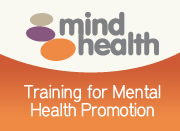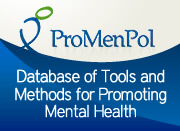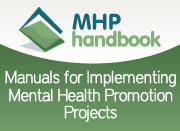Tools
- Utilities:
- Print this page
- Send this page
- Font size:
- Increase font size
- Decrease font size
WELL-BEING 2011: Announcing the First International Conference Exploring the Multi-dimensions of Well-being
29/03/2011 - Submitted by: Hohenstein Rena
WELL-BEING 2011: Announcing the First International Conference Exploring the Multi-dimensions of Well-being Hosted by Birmingham City University and the Royal Institute of British Architects (RIBA), 18th – 19th July 2011.
To further our understanding of well-being as an holistic concept, Birmingham City University, in partnership with RIBA, is hosting their first international well-being conference. The pursuit of high levels of well-being is a key goal of society, yet well-being is a complex multidimensional issue, difficult to define and even more difficult to measure. Well-being is more than issues about health, it is about our broader expectations, our needs, aspirations, hope, enthusiasm and understanding how these can be met. Wellbeing involves the ways that we interact with the environment, our encounters, our routine activities such as walking to work, to the shops, to school, aspects of work, play and relaxation.
It concerns understanding and supporting the individual, learning from the approaches of other disciplines, assessing the outcomes and impacts of a wide range of interventions. The University has been working across multi-disciplines within the Faculty of Health, Birmingham City Business School, Faculty of Education, Law & Social Sciences, the Faculty of Technology, Engineering & Environment and Birmingham Institute of Art & Design, to explore the multi-dimensions of well-being. By bringing together professionals, practitioners and academics, drawn from a wide range of disciplines to present papers, debate and discuss current understanding, practice and theory, the conference will consider how individuals can achieve and support high levels of well-being. Presented Papers will be cross disciplinary, exploring of the wider notions of well-being in relation to both theory and practice in ways that are relevant to a wide professional or academic audience:
- Well-being and sustainability
- Developing and designing supportive natural and home environments, including their management and maintenance
- Modelling well-being and the relationships between individuals and their environment, the relevance and scope of different approaches
- Measuring and assessing the impact of interventions
- Supporting the individual - art based, performance and other innovative practice
- Community and salutogenic health
- The workplace and well-being Papers are subject to an international peer review panel with opportunities for publication in selected journals, on the web and by Earthscan


